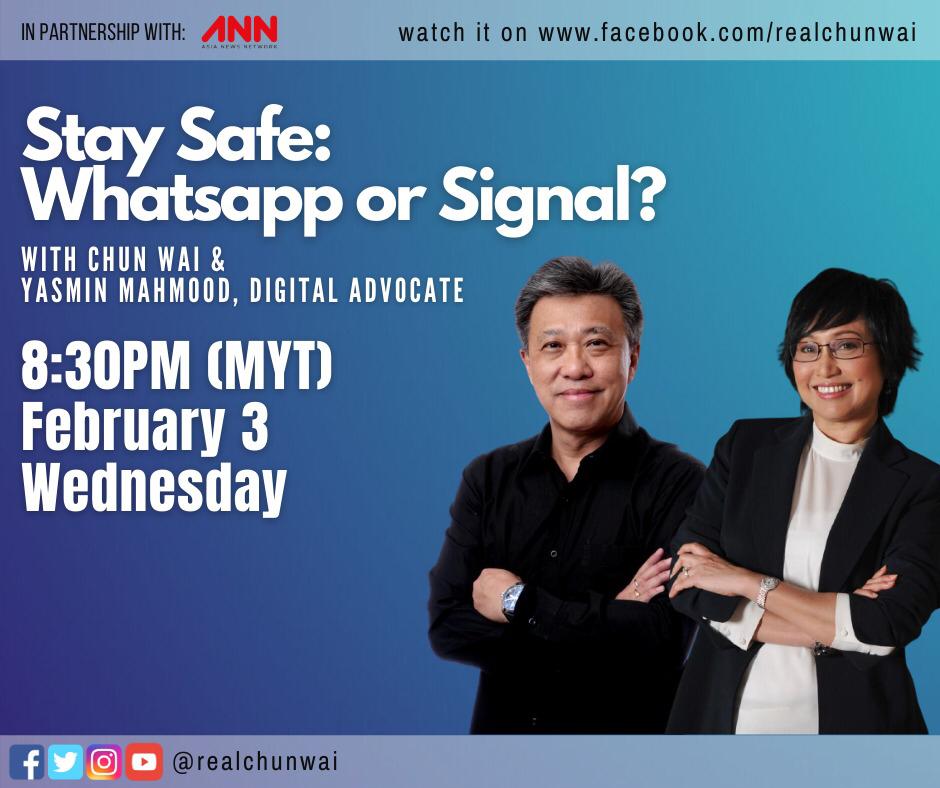

APPARENTLY, the fastest way for some Bursa-listed companies to jack up their share prices is to suggest they have received the green light to supply Covid-19 vaccines to Malaysia.
And we’re not even talking about a mere memorandum of understanding with a Chinese partner, but the brazen claim that they have Health Ministry authorisation.
However, the National Pharmaceutical Regulatory Agency (NPRA) hasn’t received any submissions.
It’s not the NPRA’s practice to respond to press reports of companies claiming to have the Health Ministry’s approval for vaccine distribution.
These companies have no track record for dealing in pharmaceutical or health products, and yet, they have now joined the vaccine business, or so they say. One, which has yet to get recognition, has even claimed to be a distributor of a reputable Chinese vaccine.
In a few cases, these announcements were filed at Bursa, which provides that touch of authority.
Health Minister Datuk Seri Dr Adham Baba and Health director-general Tan Sri Dr Noor Hisham Abdullah have divulged that no applications have come from the few companies which made public announcements.
Last week, the Securities Commission issued a warning to a company for a misleading Bursa filing, which claimed it had obtained ministry approval to distribute Covid-19 vaccines, before backtracking two days later.
The SC said it would penalise listed entities which disseminate false or misleading information in a bid to induce trading or influence share prices.
The commission said those found guilty of offences likely to induce the trading of shares or to influence share prices, could face up to 10 years in prison and be fined no less than RM1mil.
The SC is the sole regulatory agency for the regulation and development of capital markets and has direct responsibility for supervising and monitoring the activities of market institutions.
The dissemination of false or misleading information is a serious breach under securities laws. Simply put – it’s tantamount to cheating and lying to the public.
Since they are filings with Bursa, ordinary shareholders will assume this information to be true.
Even the media has blindly picked up these announcements from Bursa and assumed they were the gospel truth. Only the health reporters have diligently checked with Dr Noor Hisham on the approval status of vaccines.
It’s also not his job to check on claims by these companies. It’s here that SC and Bursa must act strongly against errant companies for providing false information.
Clearly, the chief executive officers and directors of these companies should be hauled up.
One company claimed it received clearance from the Health Ministry to commence negotiations with any Chinese company for the importation, distribution, sale and application of Covid-19 vaccines in Malaysia.
The company revealed it had obtained an approval letter “to commence negotiation and cooperation with any company from China”, but later said otherwise about the document.
The media has a duty to report such misleading claims, and they shouldn’t be cowed by legal letters demanding an apology or retraction of their reports, especially when they’ve checked with Health Ministry officials.
At least nine public listed companies have reportedly claimed they have inked agreements – in some form or another – with mainly Chinese partners, for distributing vaccines.
With frontliners and those from high-risk groups needing priority as the government begins its largest ever immunisation programme for 26.5 million Malaysians, private hospitals should also truly be considered in this inoculation exercise.
It can run concurrently with the government’s mass vaccination programme and will relieve its burden.
Those who can afford to seek vaccination from the private sector, especially those above 60, and key economy drivers, should have access to such an alternative.
So if the vaccine has already been approved by the Malaysian government, the private sector should be encouraged to make its own arrangements for supplies.
The Bangkok Post reported that two Thai private hospitals had ordered millions of doses of coronavirus vaccines ahead of regulatory approval, adding to government orders of vaccines as Thailand tackles a second wave of the virus.
“We ordered one million doses of the Sinovac vaccine with an option to buy nine million more, ” Boon Vanasin, the chairman of Thonburi Healthcare Group Plc, told Reuters.
From the initial one million doses, he plans to use about half to inoculate staff in its network of 40 hospitals and workers in its other businesses once Thailand’s Food and Drug Administration gives the go ahead.
In Brazil, reports reveal the National Health Surveillance Agency will allow private hospitals and clinics to administer the jabs as soon as a vaccine is approved.
It said private hospitals will run their programmes alongside the government timetable, “potentially speeding up the rate of immunisation in the country.”
So far, the only vaccine endorsed by NPRA is the one by Pfizer, which was developed by BioNTech. CoronaVac, the Covid-19 vaccine developed by China’s Sinovac Life Sciences, is expected to get its approval next month.
But Pharmaniaga Bhd has already taken proactive steps and secured the nod to supply millions of doses of it.
The company announced that it was now looking to supply its vaccines to the private sector and government-linked companies (GLCs) in the second half of the year.
However, the pharmaceutical group’s main priority is to supply the vaccines to the government first and only then channel the rest to the private sector, GLCs, expatriates and foreign workers, said its group managing director Datuk Zulkarnain Md Eusope.
Last week, Pharmaniaga’s unit, Pharmaniaga Lifescience Sdn Bhd, announced it bagged the contract from the Health Ministry to supply 12 million doses by April this year.
While there may be concerns the wealthy could jump the queue if private hospitals participated, clauses could be imposed factoring age and health problems such as diabetes, which make people susceptible to the virus.
It can’t be denied that the vulnerable must be given priority at public health facilities, but private hospitals can play a complementary role, too.
In Britain, the army and fire brigade have been enlisted to carry out the massive immunisation exercise, where even churches and other places of worship have been used to reach out to the people. In the United States, stadiums are being utilised, all of which outline the scale of humanity at play.
We must also include foreign workers as their health safety is crucial to the economy and the people around them.
We value their contribution to the country’s economy and certainly, they should not be last in line simply because they’re foreigners.
Malaysia will roll out the vaccines at the end of the month. Let’s make this programme an effective one with our support as we head into a brave new world of security and good health. Let’s get this going!
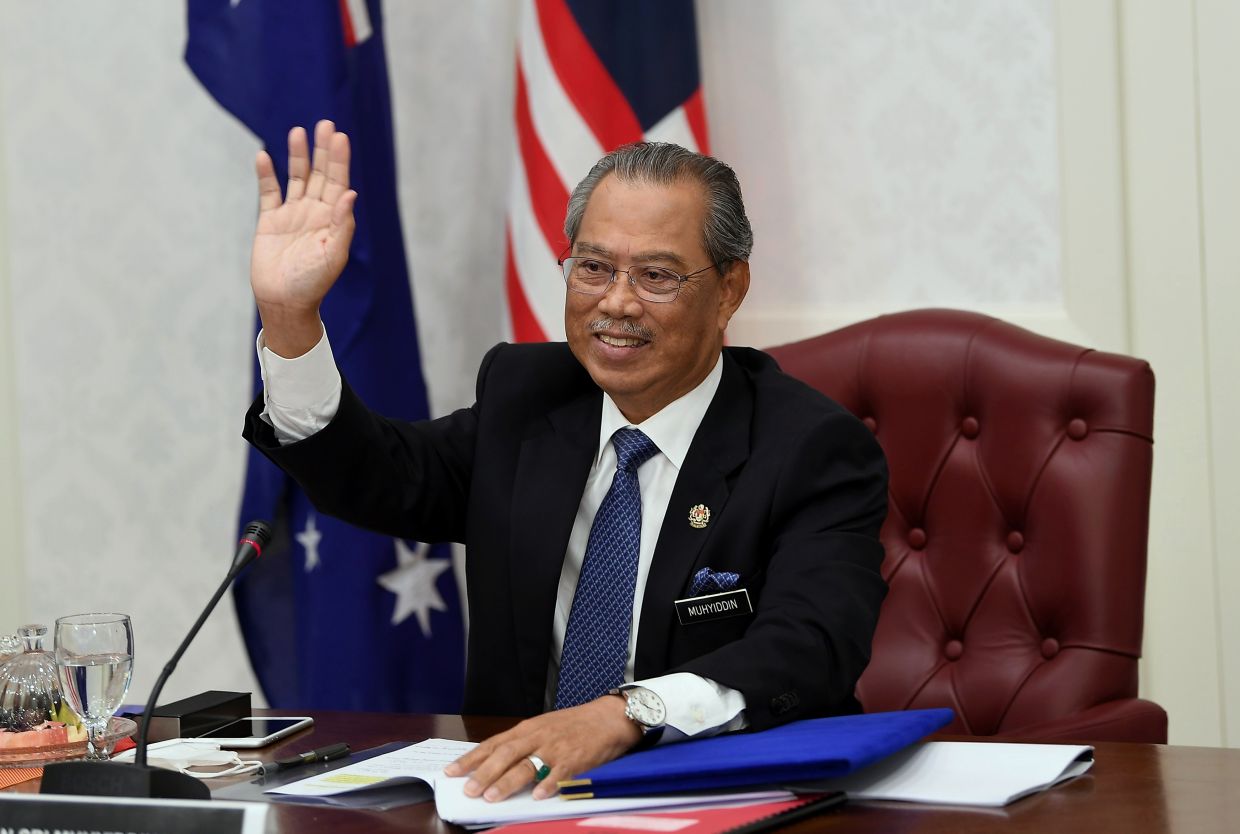
LET’S face it – investors will not put their money in Malaysia if they’re unsure of the country and the federal government’s status tomorrow.
Malaysia once proudly told investors it has a stable government, but it can no longer make that sales pitch.
The present federal government under Prime Minister Tan Sri Muhyiddin Yassin (pic) has a wafer-thin majority, and it’s struggling to keep the administration intact.
Law makers from Umno in the ruling coalition have threatened to withdraw support and want an immediate general election, despite the raging pandemic.
Datuk Seri Anwar Ibrahim still thinks it’s his entitlement to be Prime Minister, and probably spends his time counting and recounting his list of supporters.
Tun Dr Mahathir Mohamad still feels he should be PM – for the third time – and that no one is ever going to be as good as him.
Datuk Seri Najib Tun Razak awaits jail sentence and would do anything to avoid the slammer.
Meanwhile, PAS president Datuk Seri Abdul Hadi Awang, the king maker, is busy spinning the myth or rather, fantasy, that the minority non-Muslims are hatching a plan against Malay-based parties.
Now, even with several billions of dollars to invest, why would anyone want to look at Malaysia, especially if one needs justification for their shareholders?
They can choose any country they want in Asean, or anywhere else which could offer a better deal.
An unstable government, squabbling politicians, endless shortage of labour, constant water disruptions, corruption, and race and religion issues aren’t going to make for great selling points. After all, we know how ruthless our competitors can be because these factors will surely be used against Malaysia.
Keeping it real, if you are an investor, there’s no room for doubt. You want deals as certain as sunrise.
No businessmen would want to work with a country that keeps changing its PM or governments because that translates to changing policies.
Then, there are ministers who display prejudice against businessmen who signed on agreements with their predecessors.
They opine that these businessmen must be lackeys of the past government. So naturally, they insist on the review of those huge projects, further delaying their implementation. And finally, they broker for new contracts as well.
So, it’s not surprising that one of the biggest concerns among Malaysians is a report by the United Nations on foreign direct investments (FDI) to Asean countries, which has placed Malaysia as the hardest hit in the region in 2020.
Nearly all Asean countries have seen drops in FDI, but Malaysia is down 68%.
FDI is an investment made by a firm or individual in one country, into business interests in another, according to one definition.
To paint a clearer picture, the report states that FDIs to many developed and developing countries have also dropped in 2020, especially in South-East Asia, which contracted by 31% due to decline in investment to the largest recipients. The tale is similar in South America and Africa, too.
The report predicts that global FDI flows will remain weak in 2021 as the slide continues, with most investors likely to remain cautious in committing capital to new overseas ventures.
Alarmingly, the drop in FDI in Malaysia began a few years ago, and not just in 2020 or 2019.
This was before the uncertainties from the Covid-19 pandemic, which locked the entire world down, and not just Malaysia. So, it’s not the sole reason.
Let’s see how we stack up. Vietnam is the poster boy of Asean investment now.
No one cares if a country is ruled by a single party, so long as it’s politically stable. It’s much easier to deal with than democratic India, what with its nosy, quarrelsome politicians, love for litigation and bureaucracy.
Vietnam, on the other hand, has a huge, hungry and young workforce.
Singapore has an image of being a squeaky-clean country. Again, PAP has been ruling since 1963, and it has a sound legal framework and financial regulation.
The island nation has become the most attractive place for digital companies, including start-ups.
Grab was set up by a Malaysian who left for Singapore after failing to get support. We know how that one turned out.
The ride-hailing company has a strong, professional workforce, which comprises many Malaysians and expatriates. Singapore makes expats and rich people feel welcome, while we’re still unclear about our Malaysia My Second Home policy.
It’s easier for untrained and unskilled foreigners to stay and secure permanent resident status in Malaysia than it is for a foreigner with millions to spend.
Indonesia is getting its act together, and with a population of more than a quarter of a billion people, and with increasing Internet and smartphone penetration, it’s a massive market by itself.
President Jokowi has pressed the right buttons and provided the image to the world that it’s a tolerant and moderate country.
We know our weaknesses, so for our sake, we need to paint a rosier picture. The last thing Malaysia needs is self-inflicted pot shots.
We still have a vibrant business environment, with an open, diversified and robust economy, and our infrastructure is good and sound, which is paramount for operations.
The Malaysian workforce is young and educated. Certainly, most Malaysians speak English, and Mandarin literacy is an advantage in dealing with China.
Our ethnic and religious links to West Asia, Indonesia, China and India, gives us the biggest advantage in making us a strategic location between Asia and the rest of the world.
Former Treasury secretary-general Tan Sri Mohd Sheriff Mohd Kassim said Malaysia has a dynamic business culture among the business communities because of our multi-racial makeup.
“Each race brings its own strength to the economy. The legacy from the foreign migration from China, India and Indonesia over the last 200 years is that we have a modern generation of business leaders emerging to blaze new paths to success.”
The government, despite the current uncertainties, is still pro-business, and its policies clearly reflect that in ensuring opportunities for growth and profit.
But we need to do better. As Dr Sukudhew (Sukhdave) Singh, a former Bank Negara Malaysia deputy governor and former Khazanah Nasional Bhd director, wrote recently in an article: “We are not a united nation. This is not an accident of history. It is the outcome of a political game plan.”
He posed several relevant questions, including, after 30 years, is our economy strong, resilient, competitive and dynamic? Are we an economically self-righteous society with fair distribution of wealth and without discrimination, exploitation and injustices? Are we a liberal, tolerant and knowledgeable society? Are we an ethical and moral society? Are we a liberal democracy? Do we have “Bangsa Malaysia”?
“Hence, Malaysia remains a divided nation with its citizens defined by race and religion, and with differing economic and political agendas. This makes us weak and vulnerable.
“What we need now is a clear vision of our place in the global economy, the courage to make effective change even in the face of opposition from vested interest groups, and finally, effective implementation. If we care about our future, we simply cannot allow what is happening now to continue.”
But all is not lost. I believe in Malaysia and Malaysians – not necessarily the politicians – because we’ve been written off before, even by the British when they accorded us independence. However, we’ve always bounced back.
We are seeing it in trade, which rebounded with a high trade surplus even during the pandemic, due largely to the high demand for rubber and electrical and electronic products.
According to the Statistic Department, Malaysia recorded the highest exports of RM95.7bil in December last year.
We need to stimulate the investment climate to make it more dynamic, so that it offsets the declining trend from FDI inflows. After all, this can’t change overnight.
We can’t afford any cut and paste, or worse, unimaginative, development plans for the coming years. And truth be told, we’re sick and tired of politicians who are only busy plotting to put themselves in power at a time like this.

THE problem with working from home is that we spend too much time in front of our computer and mobile phone screens without realising we’ve worked more than the required hours under labour laws.
There are bosses who think they should incessantly send instructions to you because they know you’re trapped at home.
They don’t even need to trace your location because that’s a frivolous detail to them.
These are the type who think they own your life and soul simply because they keep you employed.
Then there are those who think you’re not working and probably using the time to bake cheesecakes for extra income, or peddling perishables like fish balls, chicken and vegetables in neighbourhood chat groups.
Of course, they could also be suspicious of your purported research on economy consumption and living patterns – which really translates to you being on a Netflix or video portal binge while kicking up your heels on the couch.
During MCO 1.0 in March last year, many of us (or was it just me?) were glued to Tiger King, a series about breeding big cats, a bizarre underworld and an eccentric complement of characters.
They’re tasteless personalities, not because Covid-19 infection robbed them of their sense of taste and smell, but just bad people.
The series, in the words of Wikipedia, is about murder (or rather, a threat of murder), mayhem and madness.
It’s essentially a true story about the life of a zookeeper who calls himself Joe Exotic, and a rival, Carole Baskin, who calls herself a conservationist. Things turned nasty when Joe accused Baskin of doing the same thing – abusing and exploiting wild animals.
It was at this point that many of us, confined and locked up in our homes during that first movement control order spell, began wondering if the analogy could be applied to our political ecosystem.
Well, our politicians have always been adept at hypocrisy, so it’s bizarre to hear them accuse each other of playing politics.
If they don’t play politics, what do they do then? Do they honestly expect us to believe that they spend their time serving the people with their 10-minute photo opportunities and cleaning drains, stunts for the benefit of the press?
The difference between Tiger King and our political circus is, in the series, animals get exploited, but in our “ring of entertainment”, the rakyat pays the price – all the time.
Now, with MCO 2.0, we’re back on the TV-binge trail. In March last year, all restaurants had to close by 8pm and only takeaway was allowed.
This time, eateries can stay open till 10pm, but it’s still only for takeaway, though. And roadside food operators are now permitted as well.
It’s hard to ignore the feeling that MCO 2.0 is much more relaxed. No doubt, it was tougher the first time around.
Perhaps the authorities are aware of the dire consequences of people not being able to earn a living if measures are too harsh.
It’s getting harder even for petty criminals because it’s impossible to break into houses when everyone’s home. It’s just as difficult to be a snatch thief when not many people are walking the streets.
But I digress. So, back to horrific TV characters, if we thought Joe Exotic was bad, the people in flavour of the season Bling Empire are worse. It’s literally a zoo.
It’s diabolical that Asians – especially Chinese-looking people – have been blamed for the Covid-19 pandemic, especially with ex-US president Donald Trump’s idiotic incessant reference to the “China virus”.
Chinese or those of similar stock aren’t exactly the best liked people on earth now, or at least in the Western world.
Thanks to non-stop Western media propaganda, many Anglo Saxons think all China-made telephones are spy devices, and TikTok is part of a grandiose plan to make Caucasians look stupid and used as evidence to discredit them.
We all know TikTok is meant to make all of us look voluntarily stupid, while a Chinese guy based in the US makes tonnes of money from it.
By now, most Westerners believe that we all eat bats, snakes, dogs and everything with four legs, including tables.
Every Chinese, or those who look it, are a clear and present danger in the eyes of the FBI, CIA and their operatives. After all, many Ameri-cans can’t tell the difference between turbaned Sikhs and the Taliban.
So Bling Empire couldn’t have come at a worse time. The Chinese will now be viewed as loud, materialistic show-offs with bad taste in fashion. Truth be told, though, some dress sense bears hideous and awful results.
So, in this show, the mainland Chinese, Singaporean, Vietnamese and ABC – American-Born Chinese – or more accurately, an adopted one, are all included, except for Malaysian Chinese. We must really be inept for not making the cut.
Even our Sarawak-born Henry Golding played a Singaporean who had to endorse purported Singapore food like satay in Crazy Rich Asians. Our iconic Tan Sri Michelle Yeoh had to do likewise, minus the satay, though.
For the uninitiated, Bling Empire is a new reality series about a group of super rich, ie, filthy rich, Asian friends living in Los Angeles.
Channel News Asia (CNA) described it as a cross between Gossip Girl and Crazy Rich Asians and implied that those unaware of the show must be “living under a rock”.
Stars of the show include Kane Lim, who’s the son of a Singa-porean billionaire. There’s also Asian-American model Kevin Kreider, philanthropist and couture collector Christine Chiu, “world-famous” DJ Kim Lee, entrepreneur Kelly Mi Li, denim heiress Cherie Chan, and former equestrian and daughter of a Beijing tech billionaire, Jaime Xie, reveals CNA.
Questioning the fashion sense of the actors, the Singapore-run TV channel even sought the opinion of fashion influencer Xie, who’s meant to be the most stylish of the lot, yet shows up in fluorescent pink stiletto boots to go bowling, and a turtleneck sweater for the beach. And what is with the cast’s obsession with leopard prints?
And at a time when most of us are struggling with our finances, is it appropriate to showcase these rich Asians? Also, there seems to be little justification with the explanation “one could also argue that the series is meant to be a form of voyeuristic escapism. For one, it was filmed before the pandemic, so no one’s wearing masks, and every one’s attending huge parties”.
In any case, we don’t have many choices in MCO 2.0 because from last March, most film productions around the world have grounded to a halt. We were spoilt for choice during MCO 1.0.
I gave up after watching just two episodes of Bling Empire. The criminals from Peaky Blinders and The Heist are, in fact, more palatable to these Asians, er, I mean Chinese. It’s a crime, really.
That’s the danger of spending long hours on the couch – that we can no longer differentiate the good guys from the bad. Or the crooked gangsters, politicians and Vatican priests, if you prefer.
Are we talking about a news byte here or are we at Suburra, and what season are we on again?
Covid-19 has clawed its way out of our screens and into our lives.
THERE are some good lessons Malaysians can pick up as the Covid-19 pandemic continues to ravage the nation.
It’s still not too late to learn what we can from the first Movement Control Order (MCO), implemented in March last year.
Admittedly, many of us slacked off in observing the SOPs.
Our frontliners did a good and swift job in containing the spread of the virus. Many of us would agree that we did better than Singapore when they were trying to battle the growing numbers among foreign workers in congested hotels.
Even then, many of us felt the same problem would eventually hit us because we have more foreign workers, legal or otherwise.
We were sitting on a time bomb, and now, our fears have been proven correct based on the outcome of the Social Security Organisation (Socso) conducting compulsory Covid-19 screening on foreign workers.
This time, Covid-19 has hit the community. Affected patients are no longer merely part of the statistics. More and more of those infected are people we know or close to us.
This includes family members, friends, colleagues and business contacts we sometimes interact with at meetings or meals.
Many of those who were asymptomatic never knew they were infected until their companies began carrying out mass testing, or only when they developed mild symptoms.
By then, the responsible ones would have revealed their close contact with them, so they could be whisked to testing and then quarantine themselves.
Covid-19 doesn’t discriminate. With little regard to wealth or status, no one is spared.
There are numerous stories of prominent businessmen in Kuala Lumpur who simply attended a dinner and got infected.
There are drivers and bodyguards of royalty and Tan Sris who displayed symptoms, which sent their terrified bosses scrambling for testing and mandatory self-quarantine.
The government has finally announced that those without symptoms or are mild cases, can monitor themselves at home because public hospitals and quarantine centres can no longer cope.
Self-monitoring is universally accepted and has long been practiced in Britain and the United States. It takes the burden off frontliners so that they can focus on the more serious cases, which have increased.
There has been general acceptance of the MCO, despite the expected unfavourable response from the business community.
The number of positive cases has soared, and for once, even sceptical Malaysians – who despise the federal government – no longer claim the numbers are inflated.
Through media reports, we now know of how some employers had put their foreign workers in horrible hostel conditions, and in some cases, even refused to pay for their testing and quarantine.
These incorrigible employers even insist that since they’ve been paying taxes, the government should bear the expenses of treating their staff.
These selfish employers include those who’ve raked in billions of ringgit profiting from the pandemic.
There are good bosses, too, though. Nine manufacturers in Negri Sembilan pooled their resources to book an entire hotel in the state to quarantine their staff, which includes foreigners.
They had proper food and good facilities, even though they had to lock themselves up in their rooms. Another hotel in Selangor was booked by 10 factory owners to house their workers, who include security guards and workers from various manufacturers.
The concept of employers willing to prioritise the welfare and interest of their staff is highly commendable. There’s no point having bosses talk about the importance of human capital at annual company dinners in speeches – prepared by their corporate affairs department – when they don’t mean it.
It’s during such crucial times that leadership is tested and proven. We’ve seen the chairman and chief executive officers of companies basking in the limelight when all is rosy but sneaking off and disappearing when disaster strikes.
The low-level public relations managers end up facing the media or worse, merely despatch a press release, even when lives are lost in a disaster. It’s classic poor crisis management.
Likewise, the National Disaster Management Agency (Nadma) fared badly in responding to the viral video of poor conditions at the Malaysia Agro Exposition Park (MAEPS) in Serdang.
In fact, the rebuttal from Malaysians who stayed there and posted pictures of the food and living conditions, came out more credible than Nadma.
By then, the video and pictures with the negative postings had gone around the world. If there’s a lesson to be learned from this, it’s where we stand in effectiveness and speed in responding to such bad publicity.
It doesn’t help that many Malaysians like persecuting themselves and think the worse of the country. They forward bad news but keep silent when there’s an explanation, and unfortunately, that’s just how the dice rolls. Welcome to the world of social media.
It’s shameful when Covid-19 patients had to clean up dirty toilets at the Sabah quarantine centre.
A video was posted showing patients, who were fed up with the poor sanitary conditions of the bathrooms and toilets, cleaning the facilities themselves.
It happened at the Likas Covid-19 low-risk quarantine centre in Kota Kinabalu, Sabah.
Those responsible for the daily maintenance of the quarantine centres must do a much better job. It’s pathetic, and clearly, heads must roll. It’s simply unacceptable.
And the world isn’t just Malaysia. Such viral messages travel across the globe and immediately put Malaysia in bad light.
We can debate and argue over the required use of Bahasa Malaysia, but if we need to take on the world, we must use the major languages.
Even at the end of the MCO, whether it’s two weeks or a month, a Covid-19 Crisis Communications Team has to be in place to handle all questions and cases factually.
Yes, it’s important that there should only be Senior Minister Datuk Seri Ismail Sabri Yaakob and the Health Ministry director-general Tan Sri Noor Hisham Abdullah and the Covid-19 Crisis Communications Team to tackle the broader issues, but nitty gritty matters are significant, too.
When the mass vaccine exercise is rolled out, we can expect a ton of questions – and surely complaints – because it will involve millions of people.
We really should learn from other countries which have started the programme. They’ve not been spared from many fiascos, including logistical issues and vaccines gone to waste because recipients never turned up.
Let’s get our act together and involve every sector of Malaysia to end this pandemic quickly.
Play your part to fight this dreadful disease because we’re suffocating from the excessive and unproductive politicking in this country.
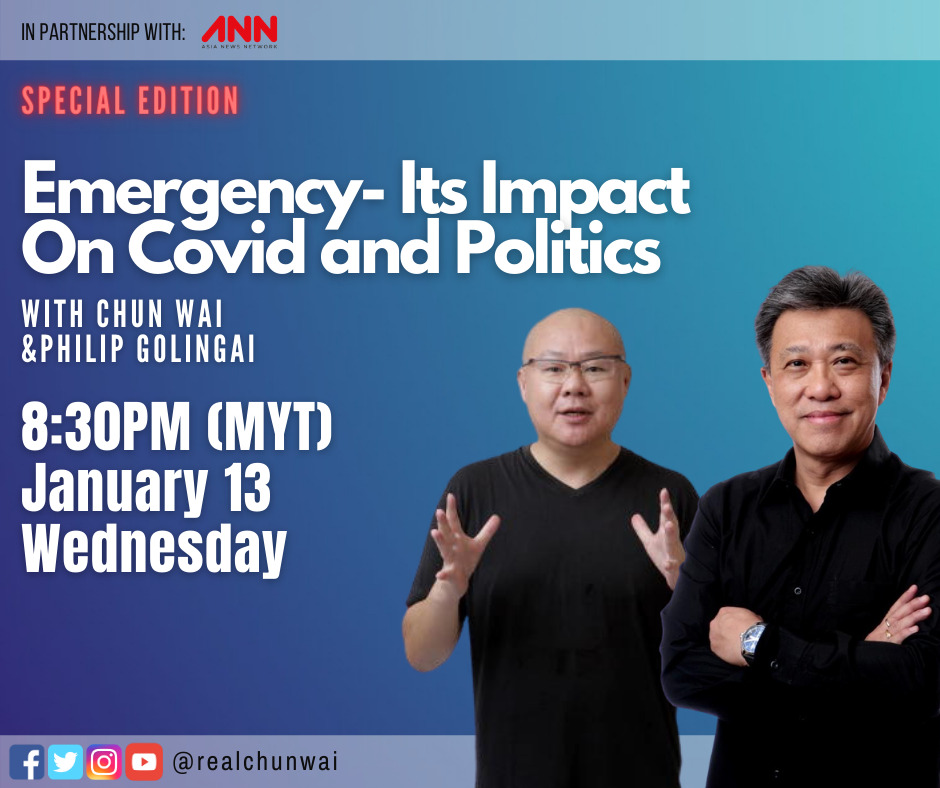
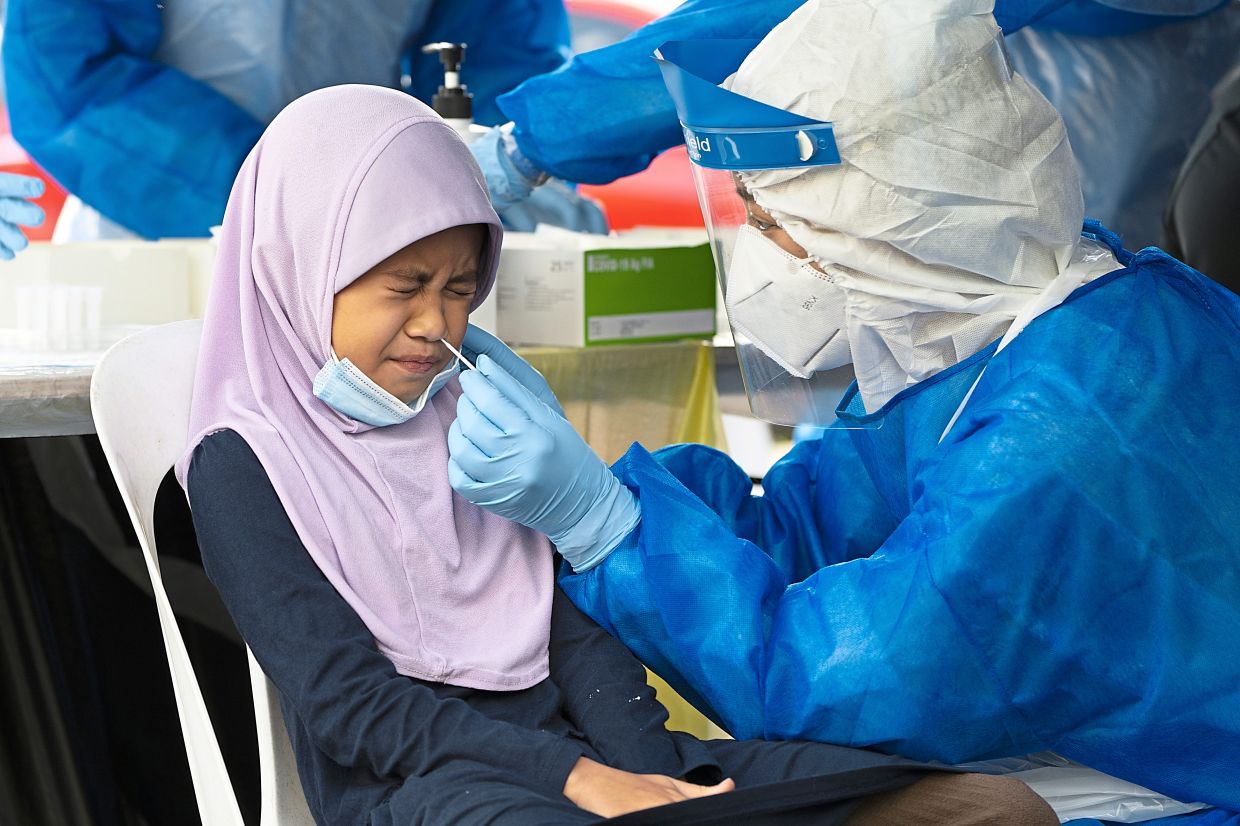
Improved measures: Covid-19 testing has become more readily available and cheaper over the last few months. — Filepic/The Star
We’ve endured a terrifying year, and if we don’t address the insidious virus still on the prowl, it could be at our peril.
THE second round of lockdown due to the Covid-19 pandemic is set to happen. It was never a case of “if” but always “when”.
So it came as no surprise to Malaysians since most of us had already braced for the imminent fresh phase of the movement control order (MCO).
By last week, talk of the MCO was making its rounds on social media, and a Chinese language newspaper even front-paged the speculation with a big question mark.
It’s inevitable because the number of people testing positive for Covid-19 daily makes for horrific reading. Grim pictures of congested quarantine centres, especially those housing foreign workers, have also gone viral and are now burned into our brains.
Covid-19 is finally frightening many of us and jolting our senses to do something about it.
The MCO will be a costly affair because we suffered losses of RM63bil last March, with an estimated daily perishing of RM2.4bil, but saving lives takes priority over the economy now.
After all, this must surely be the last option the government has considered.
We must find new ways to battle the pandemic. With our Covid-19 hospitals and quarantine centres bursting at the seams, we have to adopt the approach of other countries grappling with massive numbers.
The focus should be on patients who need immediate treatment and attention. Those with mild symptoms or are asymptomatic should just be quarantined at home and only resort to calling for medical help if they develop severe symptoms. This has become the global practice and is in line with World Health Organisation guidelines.
They’ll just need to monitor themselves. This is the practical approach that many countries have taken.
Only patients with no possibility of quarantining or physical distancing, like a family living in a tiny flat, will be catered to.
Covid-19 testing has also become more readily available and cheaper over the last few months.
If it cost over RM300 last March and about RM250 at clinics, now, many private labs are offering the tests at RM130, with appointments made online.
Those seeking these tests only need to arrive at the appointed time, take their tests and then receive the results via email or WhatsApp the following day.
These private initiatives have helped lighten the load of public hospitals and clinics.
Obviously, we need to galvanise everyone in the fight this time. It’s not just about big corporations handing mock cheques to the Prime Minister for a photo opportunity, or posting morale boosting messages for our heroic frontliners.
Our beleaguered medical staff and security forces, especially policemen, can’t survive on praise alone.
We need a partnership involving the government, private sector and non-governmental organisations. Let’s rally the troops this time, in what’s been termed the whole- of-society approach, to include everyone in this all-out war against the coronavirus.
Given the predicted increase in patient numbers, the Health Ministry, in its recommendations, might need to review its strategy.
If we have to fast track the approval of vaccines, like Singapore did despite its lower numbers, then Malaysia would have to do the same to be more proactive.
Basically, expedite the regulatory processes so that immunisation can begin as soon as the first doses of vaccines arrive at the airports, as rightly proposed by a group of eminent doctors in a letter to the Prime Minister.
They also called for the debunking of Covid-19 and vaccine disinformation to empower the people with informed consent when the vaccines arrive, adding that besides prioritising the high-risk groups, migrant workers should get their shots, too, because they protect our industries.
The cost of vaccines will also need to be capped at less than RM100 per dose for those getting their shots privately.
While purchasing vaccines is done by the government, it should seriously consider allowing private hospitals to buy their own allocations.
Professionals, businessmen and those vital to our industries need to be protected too, because their expertise is invaluable.
If they wish to pay premium rates for the vaccine because they can afford it, then private hospitals should be allowed to have their share of allocations. At least let these private hospitals make their own arrangements.
It would also lift the load off the government, whose immediate focus should be on Malaysians who need help the most, those who shouldn’t be denied the right to the vaccines.
It won’t help if we’re too stringent, too legalistic or too regulatory in our approach.
We need to win the war against Covid-19. We simply don’t have time for politicians.
And no double-standard treatment for politicians just because they are elected representatives. If anyone takes a trip to Turkey again, let’s really roast them this time.

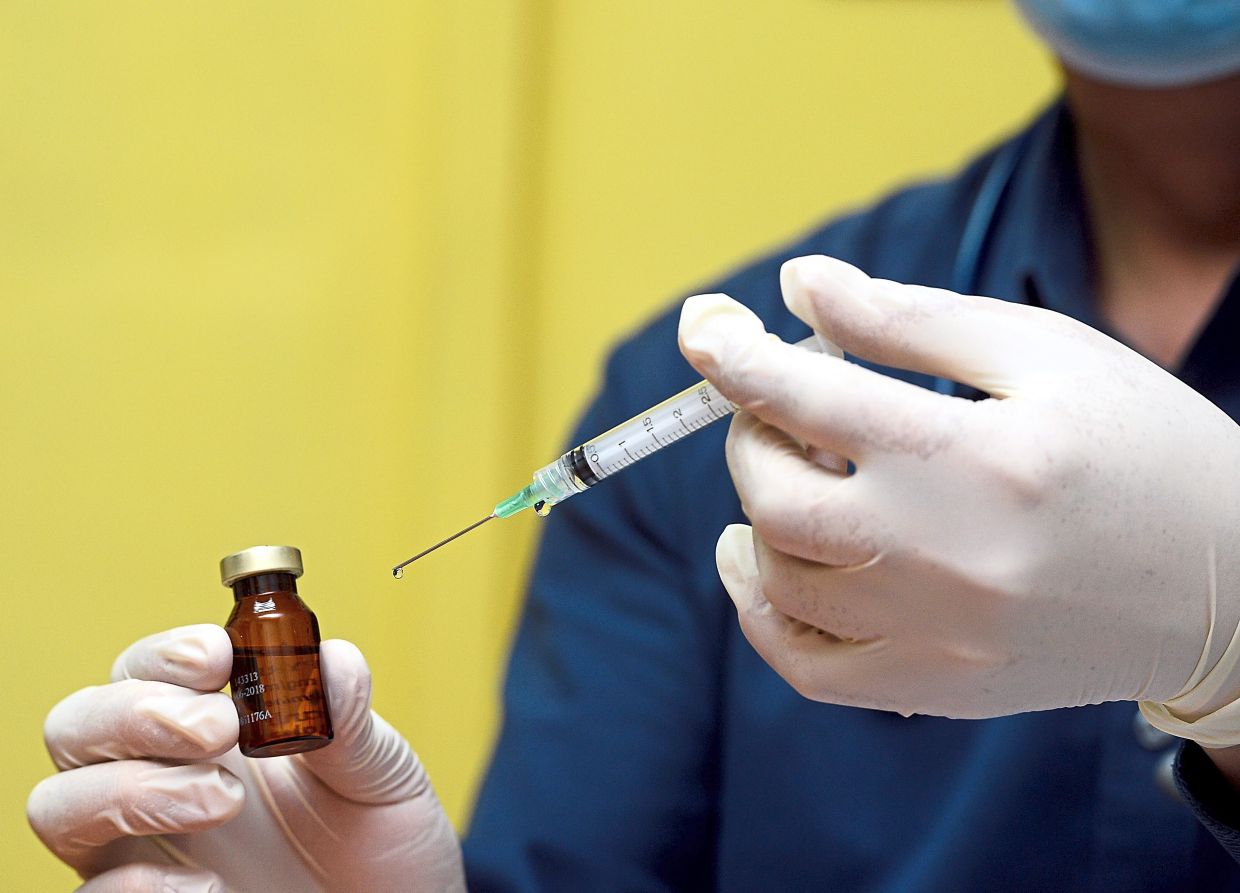
New hope: Malaysia is set to embark on its first Covid-19 vaccine trial, involving some 3,000 participants from eight hospitals under the Health Ministry.
AS we begin 2021, most of us are invigorated by renewed hope, positivity and optimism. After all, it surely can’t be as bad as the past year, when the pandemic stunned us into submission and destroyed our way of life.
The miraculously quick availability of vaccines – although only a few countries have fast tracked its approval – means a cure has been found, so, a rebound is in sight.
The coronavirus-induced recession crushed almost all businesses, with the aviation, tourism, entertainment and hospitality sectors the hardest hit.
Many of us, like the rest of the world, lost our jobs, and working from home has become entrenched.
But as Malaysia enters the first week of 2021, and as we prepare to welcome the Year of the Ox, many of us feel bullish.
Naturally, we need to be level-headed, even if we want things to be better.
The number of Covid-19 positive cases can only increase, and Malaysia has disappointingly gone from bad to worse.
But this is partly due to massive screenings conducted on foreign workers by health authorities.
We went into lock down in March last year when our Covid cases averaged mere two digits daily. But the current numbers are a staggering all-time high well into four figures. Still, we’re free to move around, albeit with safe practices firmly in place.
The truth is we’ve simply succumbed to the economic reality. Having to balance the needs of the economy and health of the public means we can’t revisit the harsh movement control order (MCO).
Although most of us in the Klang Valley continue to live with the conditional MCO, the tough measures experienced during the MCO period no longer apply.
As local tourism resumes, it’s apparent how caution has been thrown to the wind, exhibited by congestion at ferry jetties, and in one situation, a huge crowd at a clothing apparel promotion.
The malls are packed again, and so are the restaurants and coffee shops, and that means we will only expose ourselves to the virus more.
We also need to brace ourselves for the potential shut down of non-essential businesses again if the numbers spiral out of control in the first quarter of 2021.
But real hope has arrived. There is talk that vaccines will be available by April or May, by when we hope trials with volunteers would have concluded.
We should be able to see, by then, the effects on people in countries which have taken the vaccine route.
Malaysia is set to embark on its first Covid-19 vaccine trial, involving some 3,000 participants from eight hospitals under the Health Ministry. The trial would be a Phase Three clinical trial, developed by the Institute of Medical Biology Chinese Academy of Medical Sciences in Beijing.
Malaysia is reportedly working to secure Covid-19 vaccine doses for an initial target of 60%-70% of the population.
CIMB, in a report, forecasted the market will do well in the first half of 2021, due to factors such as additional liquidity available to retail investors, improved sentiment over mass vaccine programmes in Malaysia, reopening of international borders and potential fund flows back to emerging markets.
While I remain an optimist, I am also prepared for volatility and the unexpected. The economic rebound of up to 7.5% growth will depend on internal and external factors, which involve many things beyond our control.
We will also see the unveiling of the 12th Malaysia Plan, the country’s development blueprint for 2021-2025. It could well be the ruling government’s manifesto ahead of any general election. The 12th Malaysia Plan is likely to be ready in the coming months.
However, we can expect the fractious politics to continue. If the current government seems weak with its thin majority, then the Opposition is just as divided.
It doesn’t have the numbers to topple the government, and the two main figures – Tun Dr Mahathir Mohamad and Datuk Seri Anwar Ibrahim – just can’t work together.
The DAP has a problem because none of the Malay-based parties want to work with it.
Gabungan Parti Sarawak, which is vital to hold the federal government, has also said it won’t work with the DAP either.
The continuous support from the Chinese community for the DAP – which has a strong Chinese appeal – means voting itself out of the government.
This has happened in Sabah, and now Perak, where there’s no Chinese representation in both state governments.
PAS, which is clearly enjoying its lynchpin position, will continue to push its brand of Islamist politics, which has unsettled many Malaysians.
We can expect the same theatrics and incredible claims, or lies, from some of our politicians, but they won’t be helping to inspire foreign investment.
Sarawak is expected to call for its state elections by March, and that will kick off the year’s political events.
It’s good to be confident, but don’t unfasten the seat belts just yet, because the ride will still be bumpy. And keep those face masks on, too, for insurance.